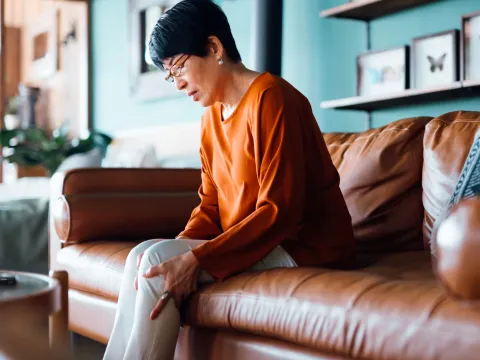- AdventHealth
The American Cancer Society recently announced that colon and rectal cancer screening for adults should begin at age 45 instead of 50, as previously advised. The updated guidelines may be a response to the rising rate of colon cancer found in younger adults. In the U.S., colorectal cancer is the second-leading cause of cancer-related deaths among cancers that affect both men and women, according to the Centers for Disease Control and Prevention.
I think most people would agree that it was time for an update because there's been a consistent and steady drift toward colorectal cancer occurring at a younger age, says John R.T. Monson, MD, Executive Director for Colorectal Surgery at AdventHealth.
Dr. Monson weighed in on these important new guidelines and explained why colonoscopies are so valuable: they not only detect cancer, they can help prevent it from happening at all.
Types of Colorectal Screenings
Dr. Monson advises that although there are different types of screenings, all roads tend to lead to colonoscopy.
Traditional colonoscopy remains the gold standard simply because its the methodology used to view the colon, remove polyps if they're there, and to biopsy any suspicious lesions that might be cancer, he said.
Stool testing can look for microscopic amounts of blood or genetic material that might point to cancer, but Dr. Monson explained that this testing is more commonly used only if there is a need to reduce the demand for colonoscopy in a community. Those stool test results, however, may indicate the need for a colonoscopy anyway.
If a patient refuses a colonoscopy or had one that was unsuccessful (their physician was unable to adequately see inside the colon due to its anatomy or other factors), a barium enema may be necessary. This is an X-ray test in which a white liquid (barium) is placed into the rectum and colon through the anus to enhance the imaging of the bowel.
How Often Do I Need to Get Screened?
If your initial colonoscopy is normal, and you have no factors that make you high risk, Dr. Monson says you can likely wait ten years between screenings.
The fine print is that this depends on a normal examination, no new symptoms, and no additional high-risk factors like strong family history, or underlying conditions such as colitis, he said. The majority of people are considered average risk.
Overcoming Colonoscopy Anxiety
It's important to Dr. Monson to stress the benefits of this type of screening. A colonoscopy is best feature is its ability to not just detect, but also prevent cancer from developing.
Almost 90 percent of colorectal cancers start as a very small benign polyp, he said, and if that is removed during routine colonoscopy, it simply doesn't turn into a cancer. That is not the same as a mammogram, for example, where you're detecting what's there, but not preventing it before it happens.
Colonoscopy does two things: it picks up cancers earlier, therefore the outcome of treatment is better, and most importantly, it actually prevents you from getting cancer. It's enormously beneficial.
He understands that preparation for a colonoscopy, which includes fasting as well as drinking a liquid that flushes out your system, isn't the most enjoyable process. While still not wonderful, the prep that we use nowadays is enormously better than it was 20 years ago.
And for those worried that this is a big, daunting event: You're in and out of the facility in just a few hours, and it really is incredibly safe.
If you'd like more information about colorectal screenings or want to start the scheduling process, we're glad to be your guide. Please give us a call at
Call855-303-DOCS (3627) or visit GetScreenedToday.com.



